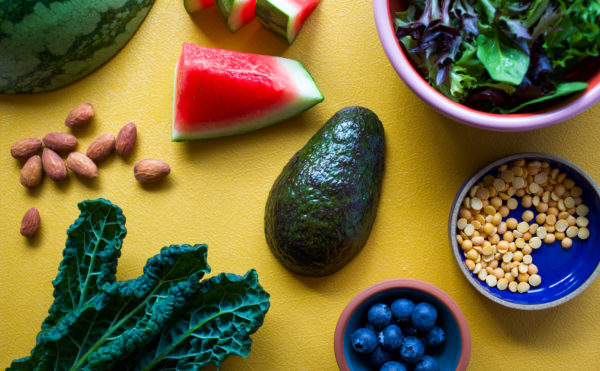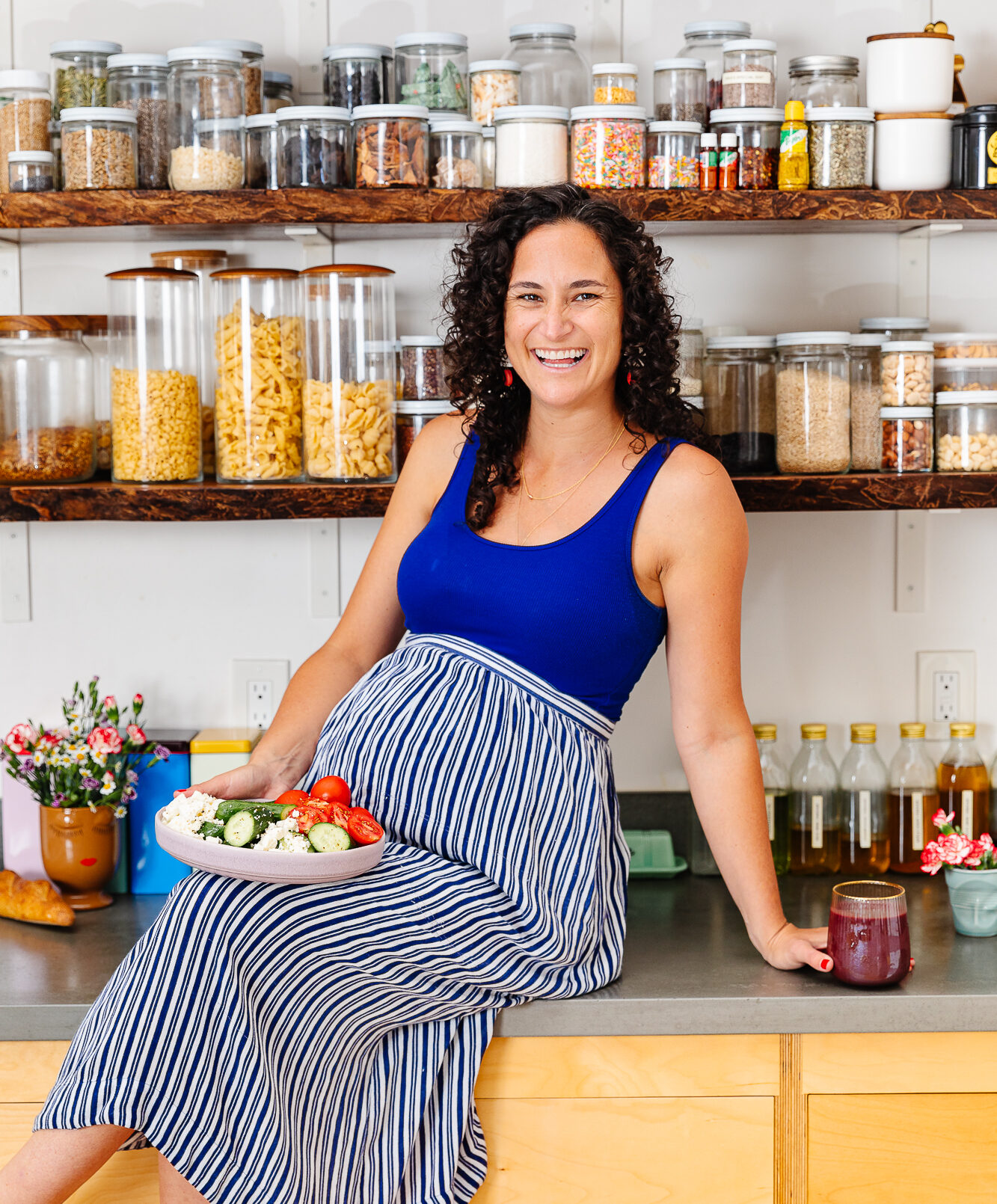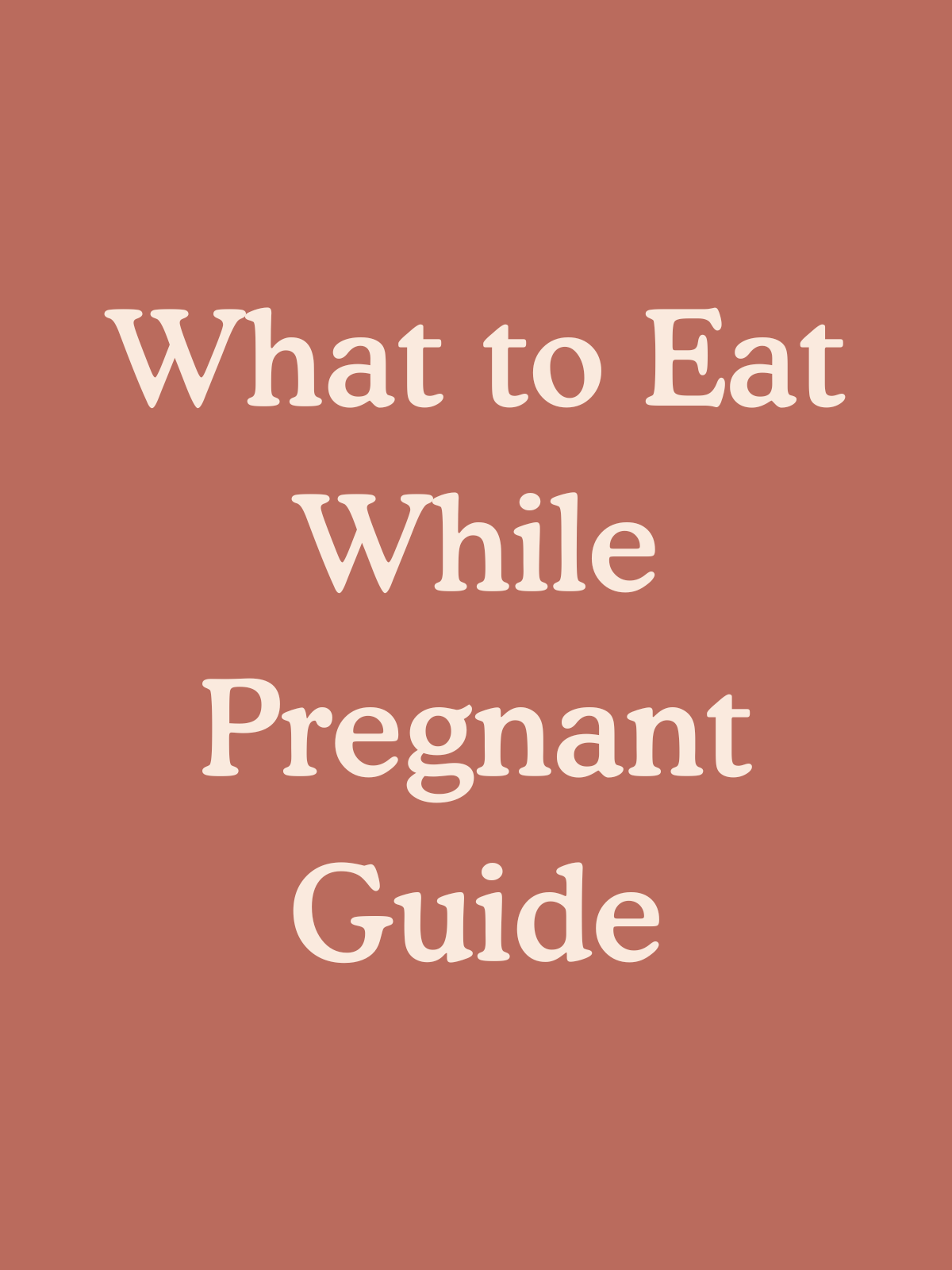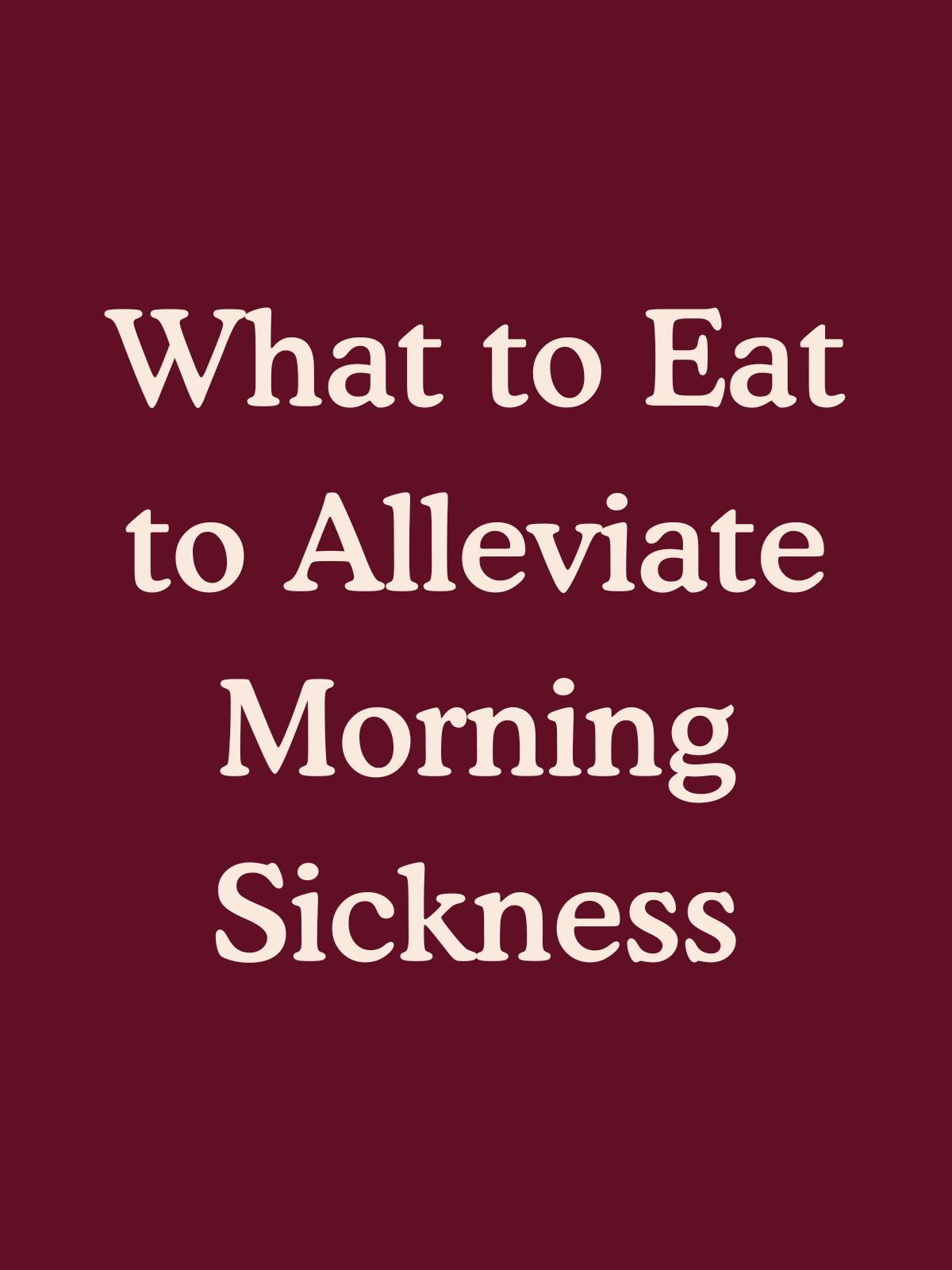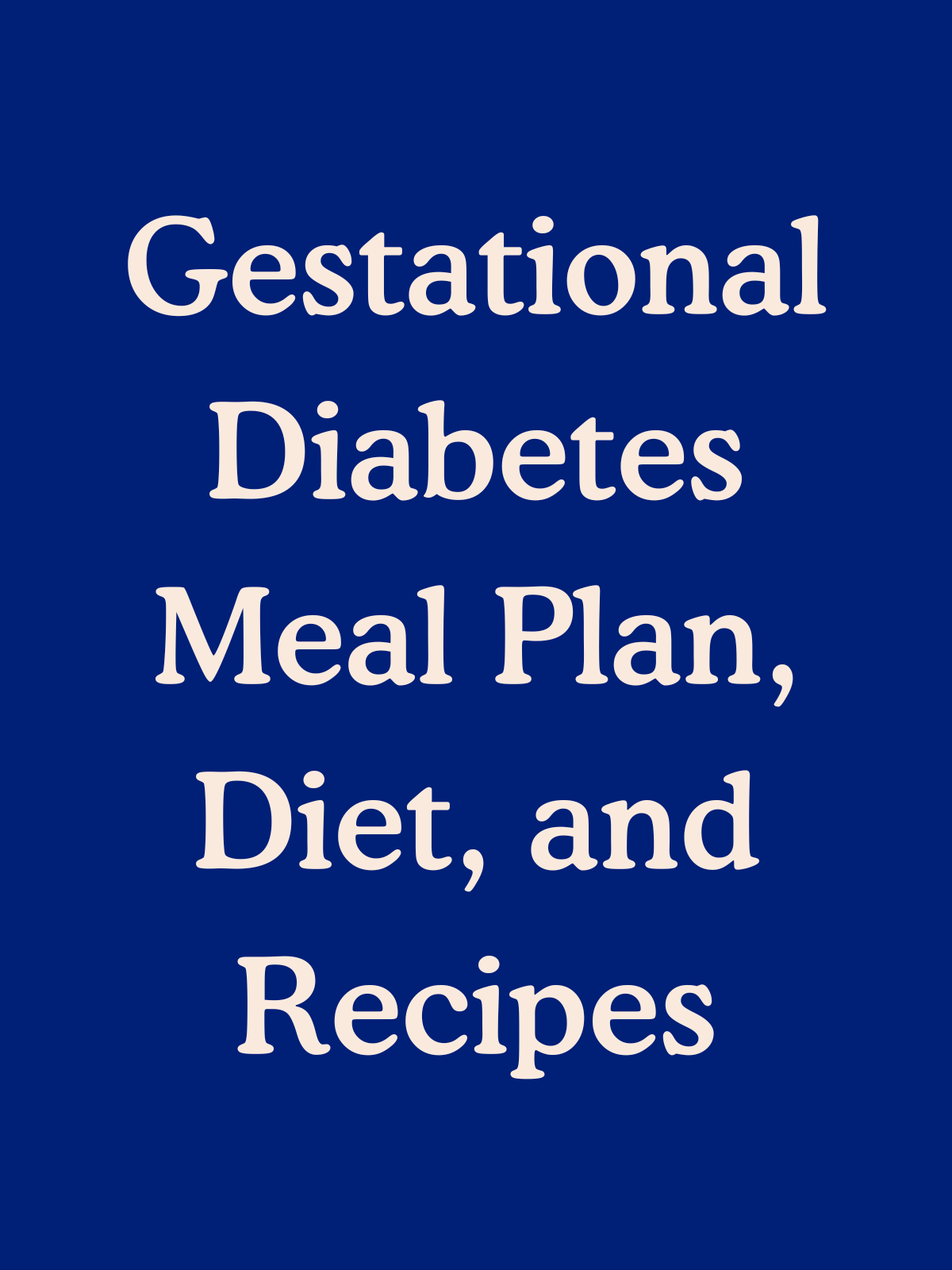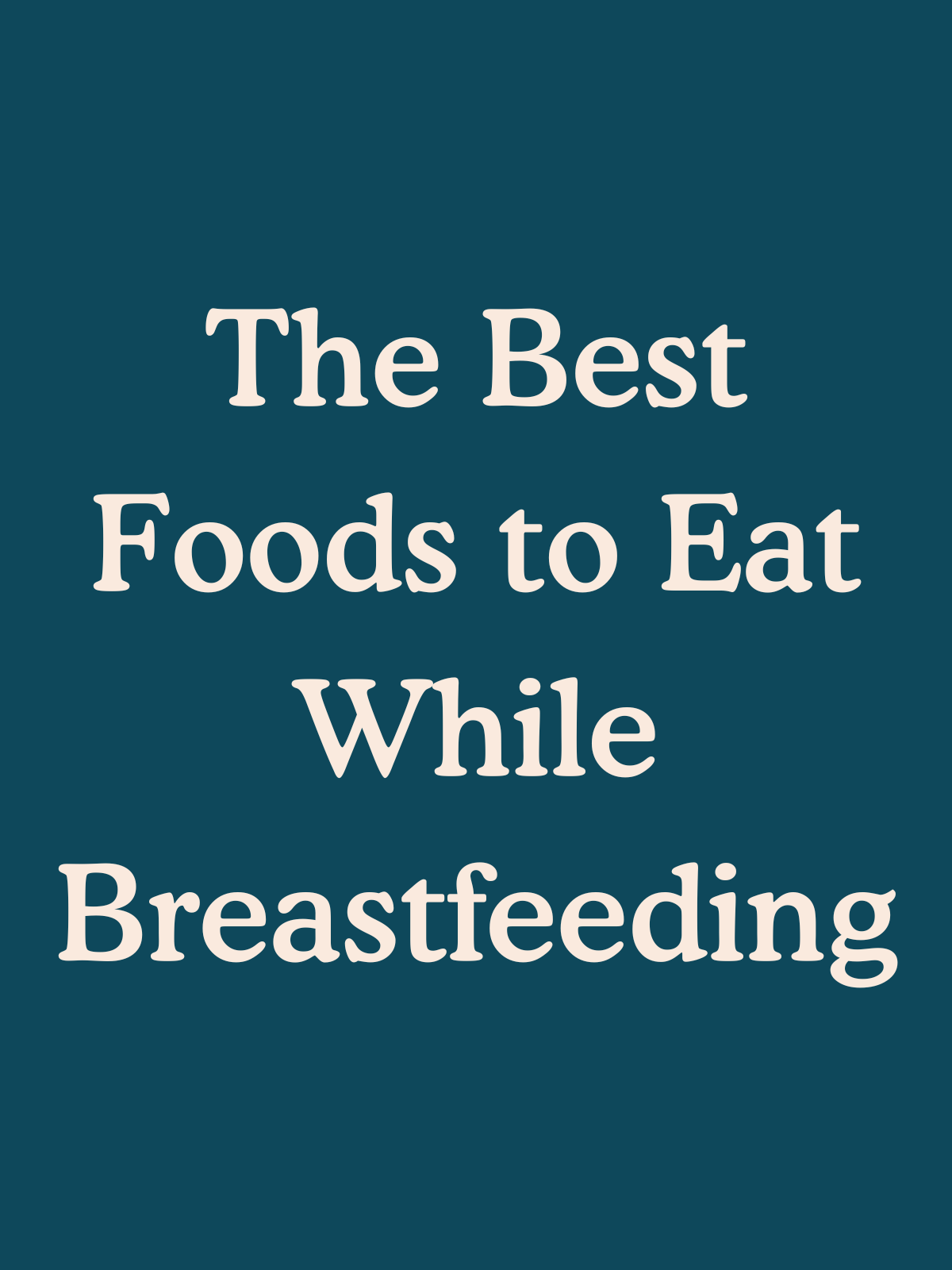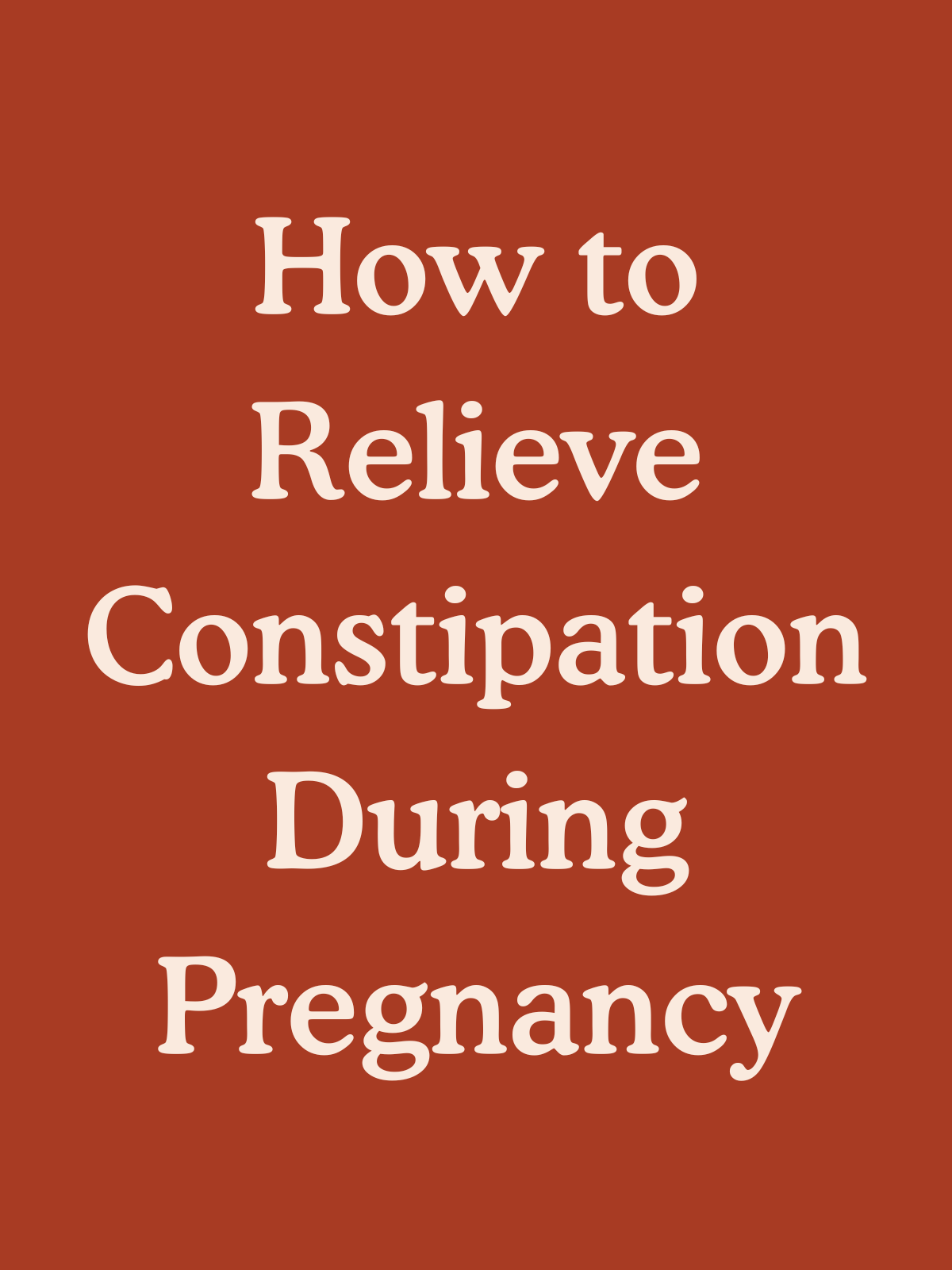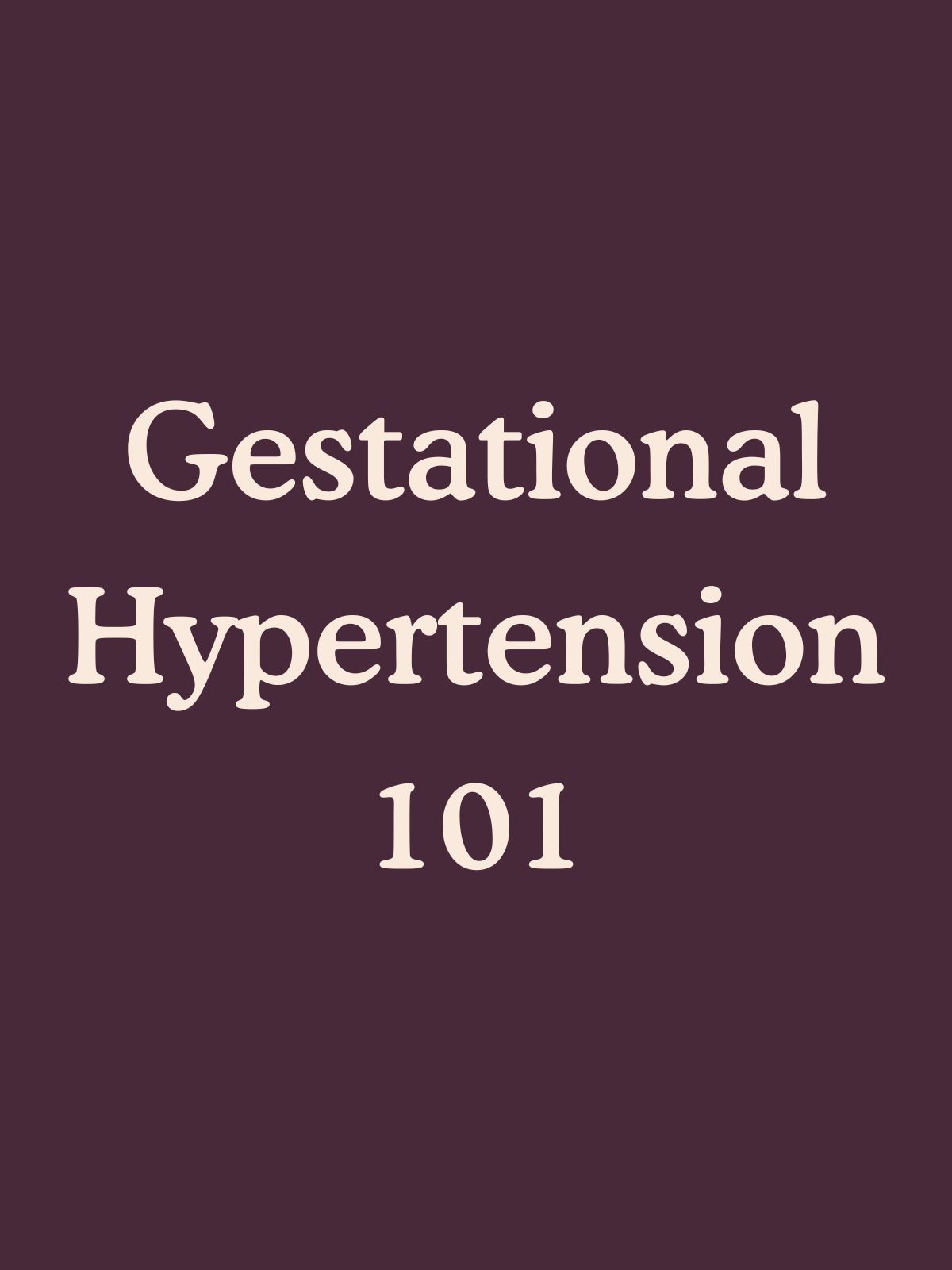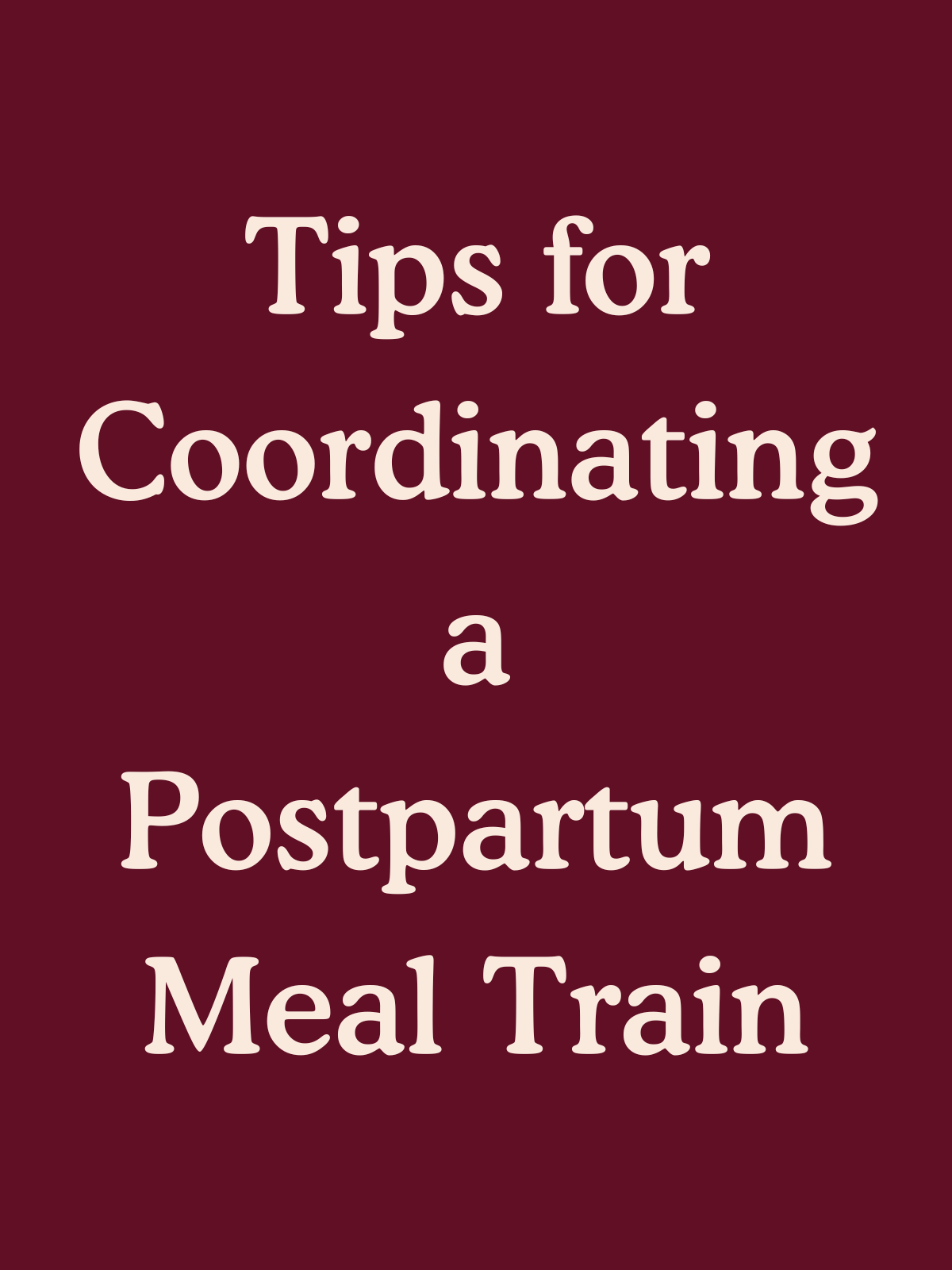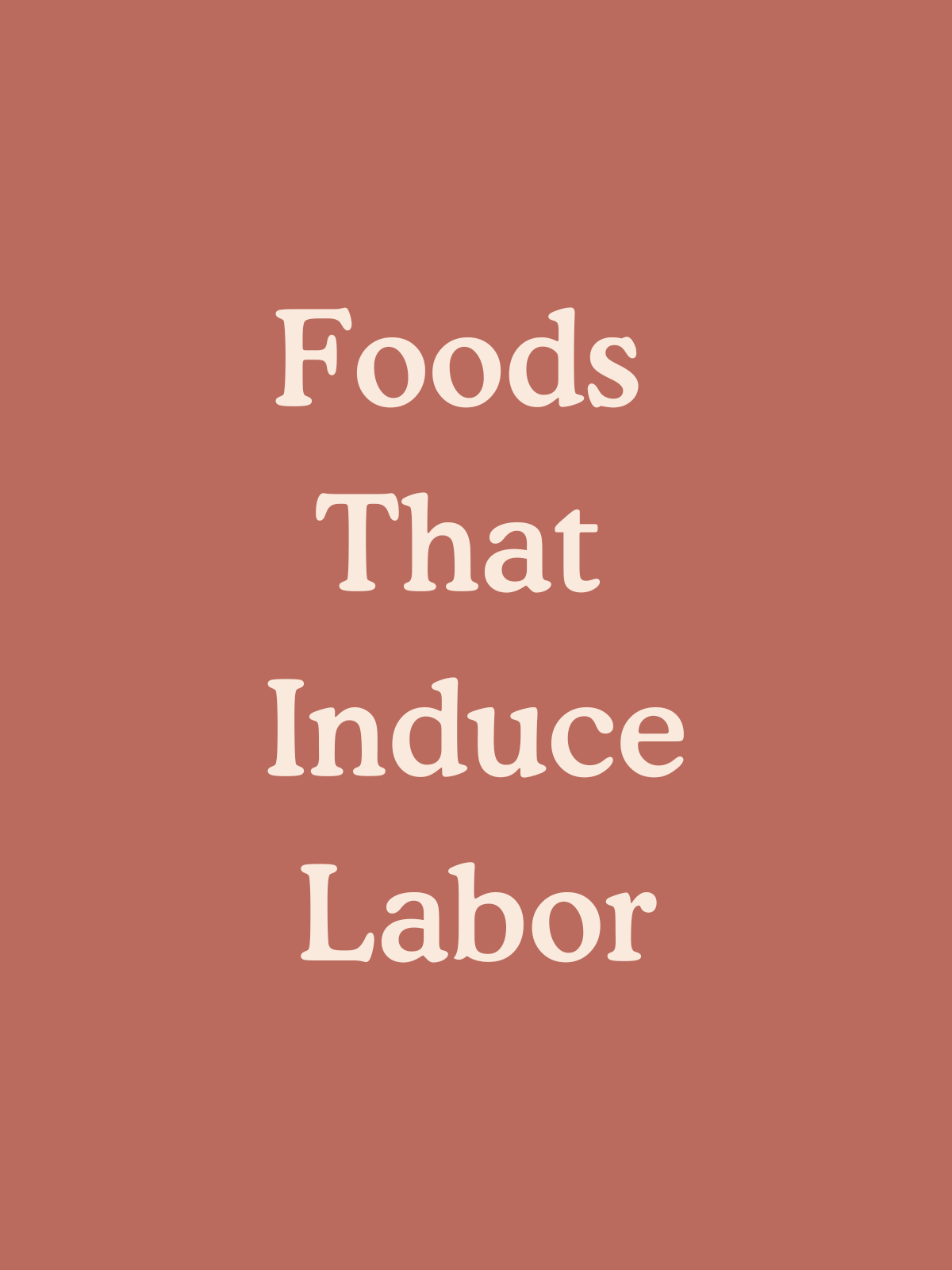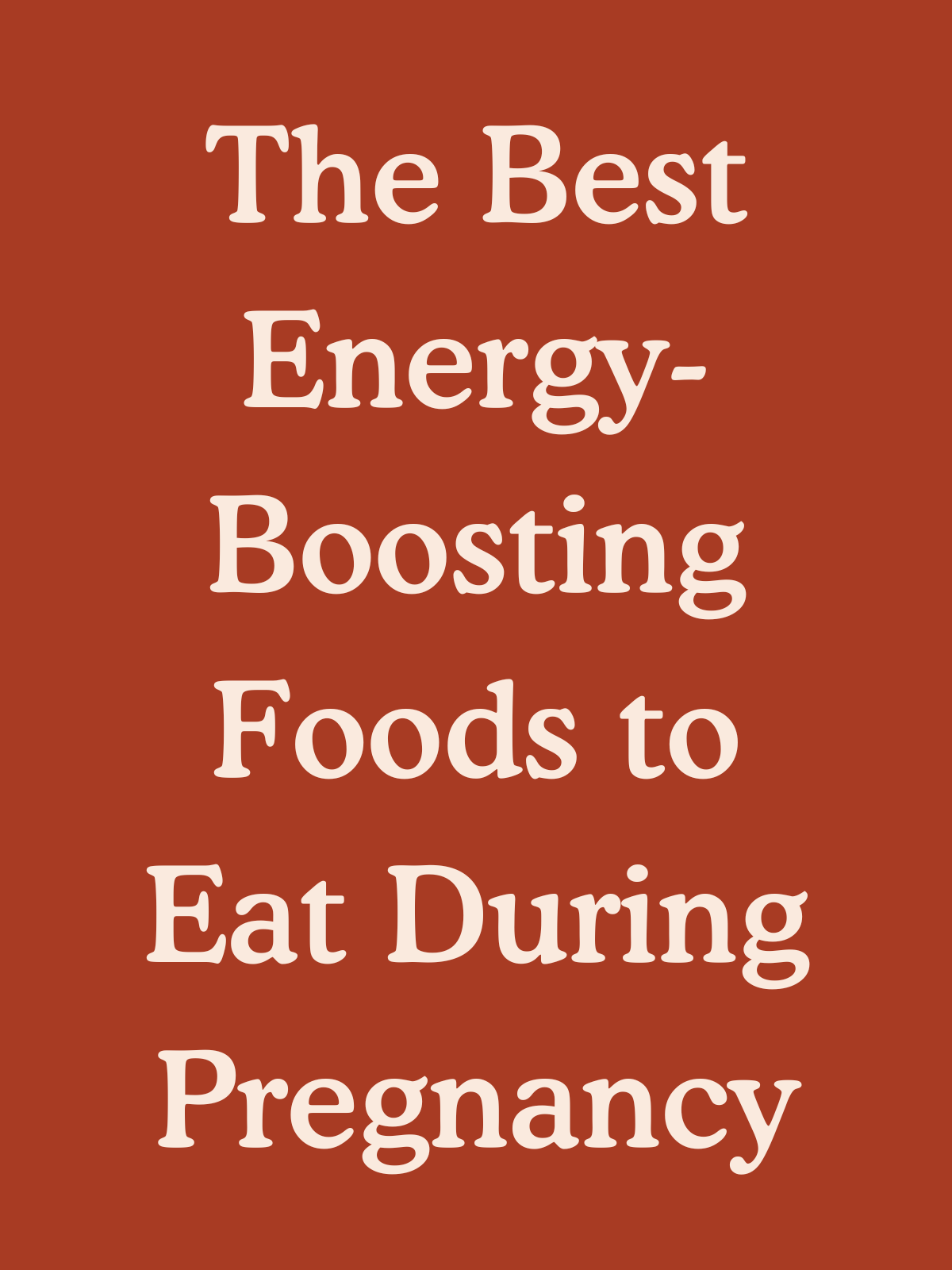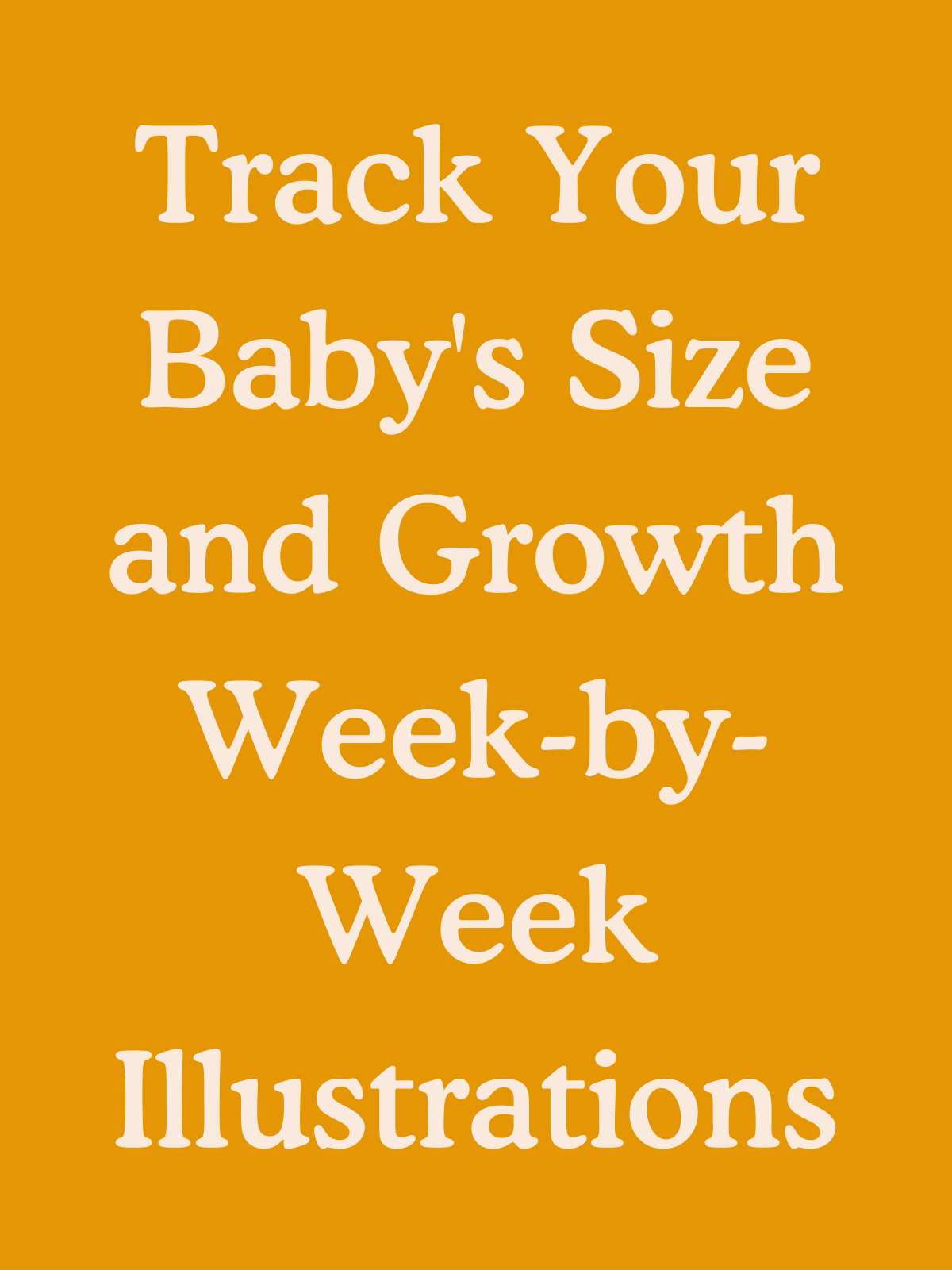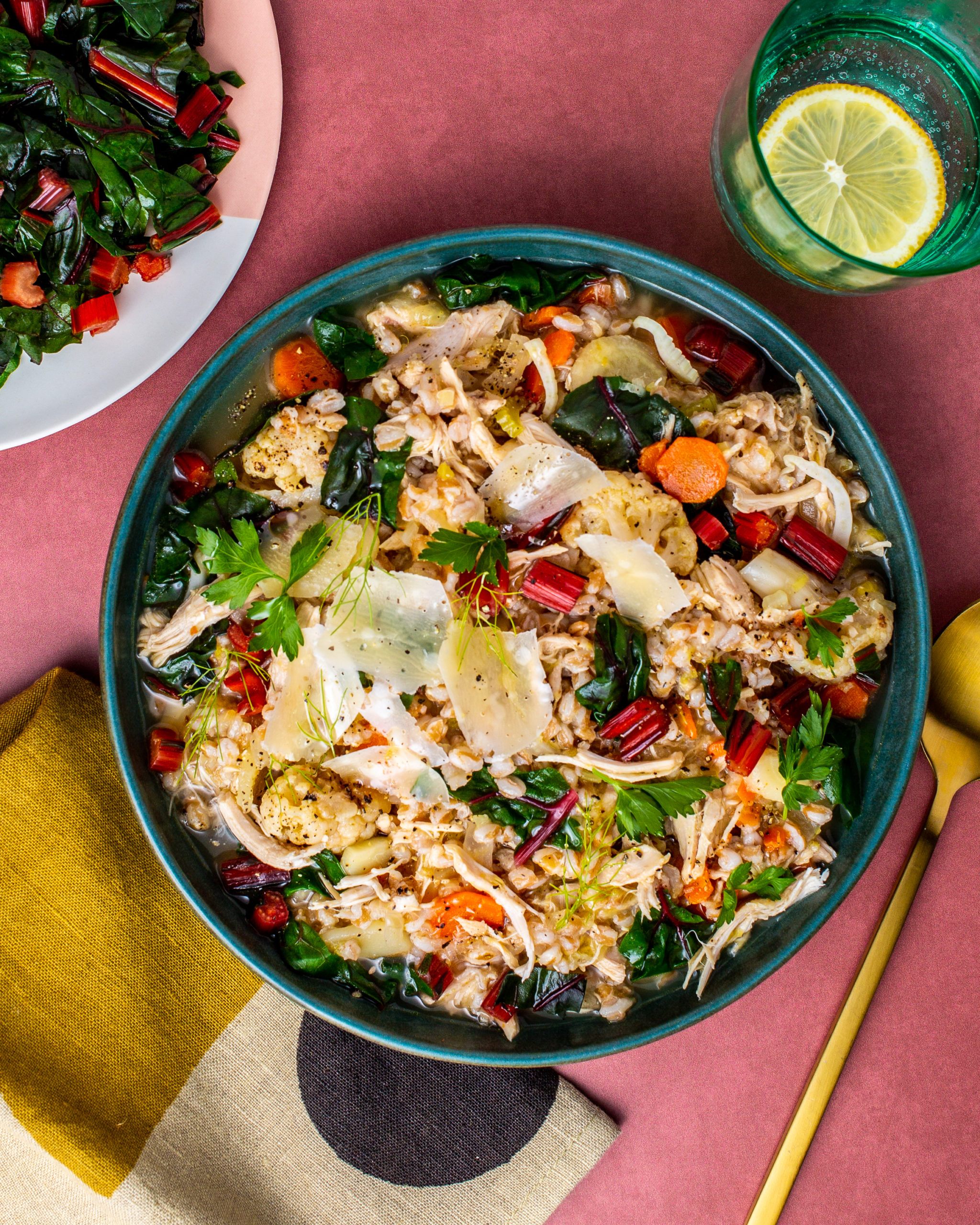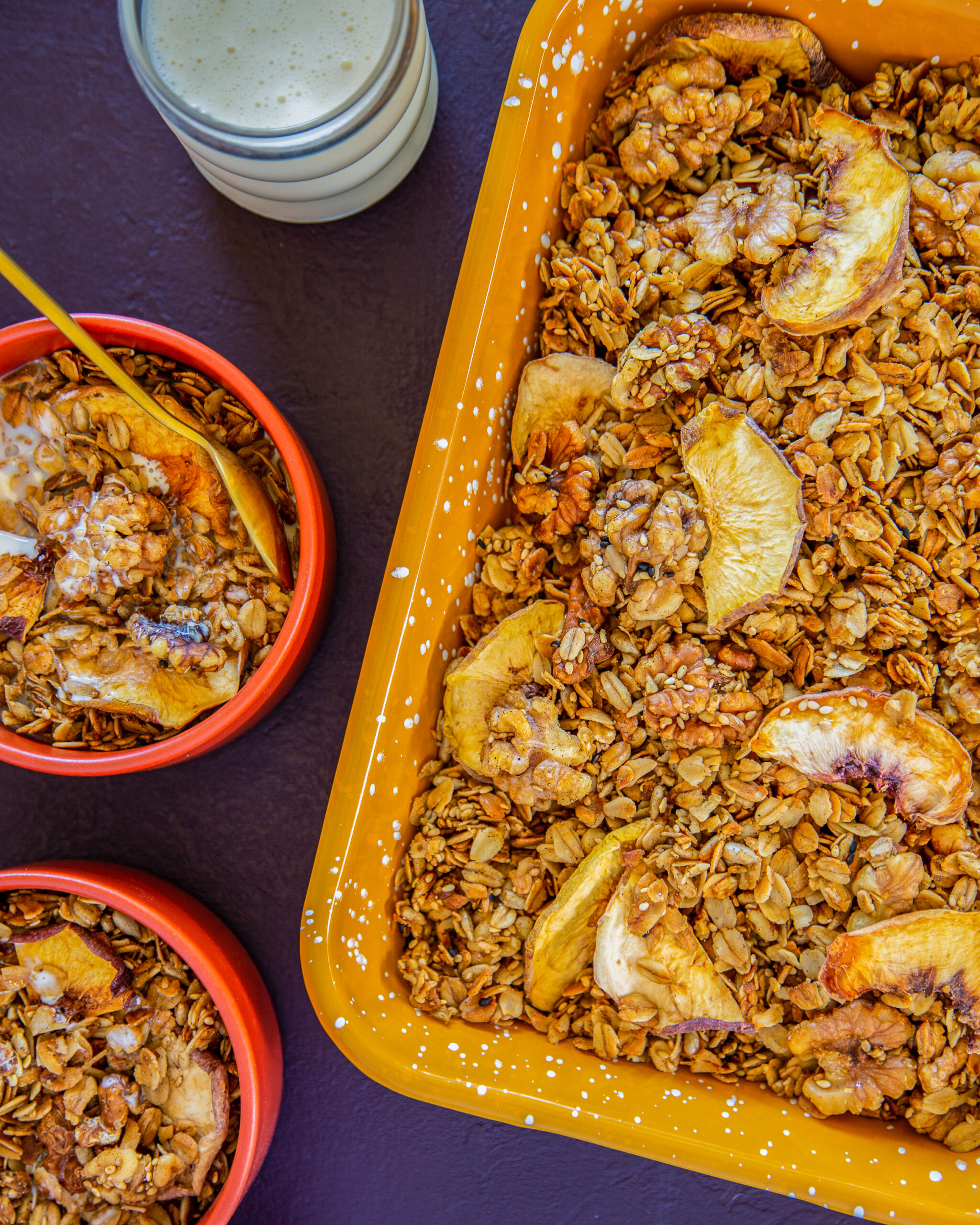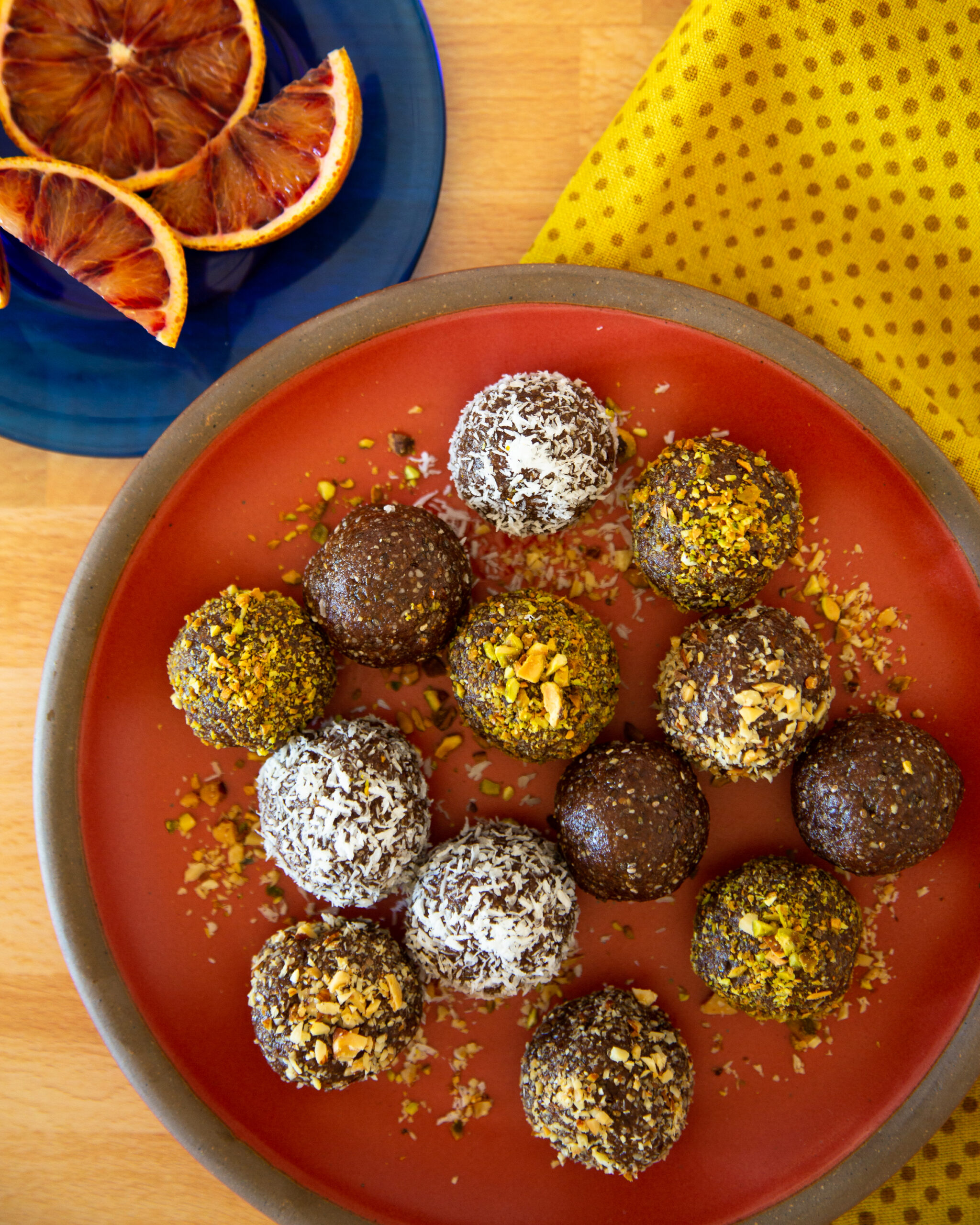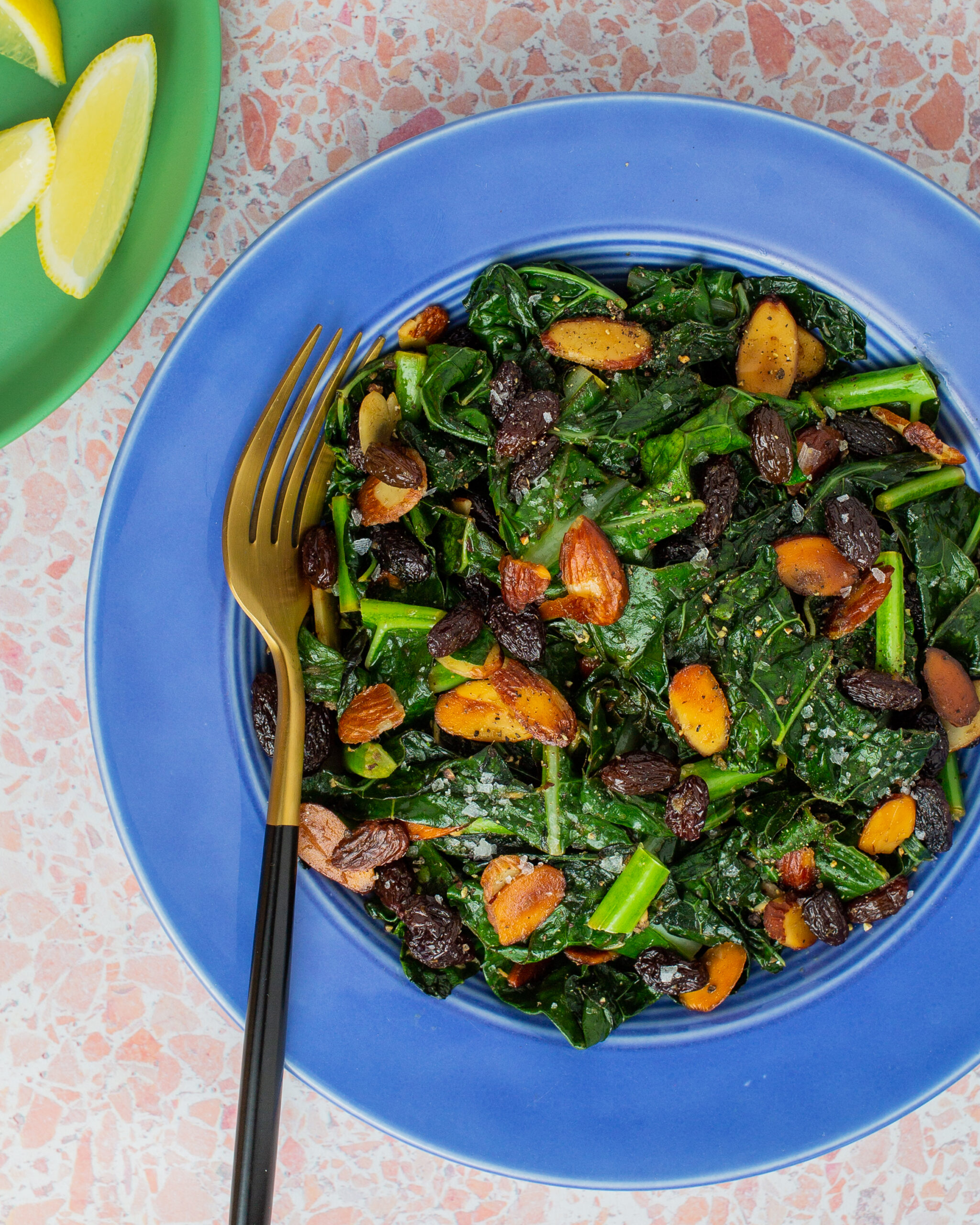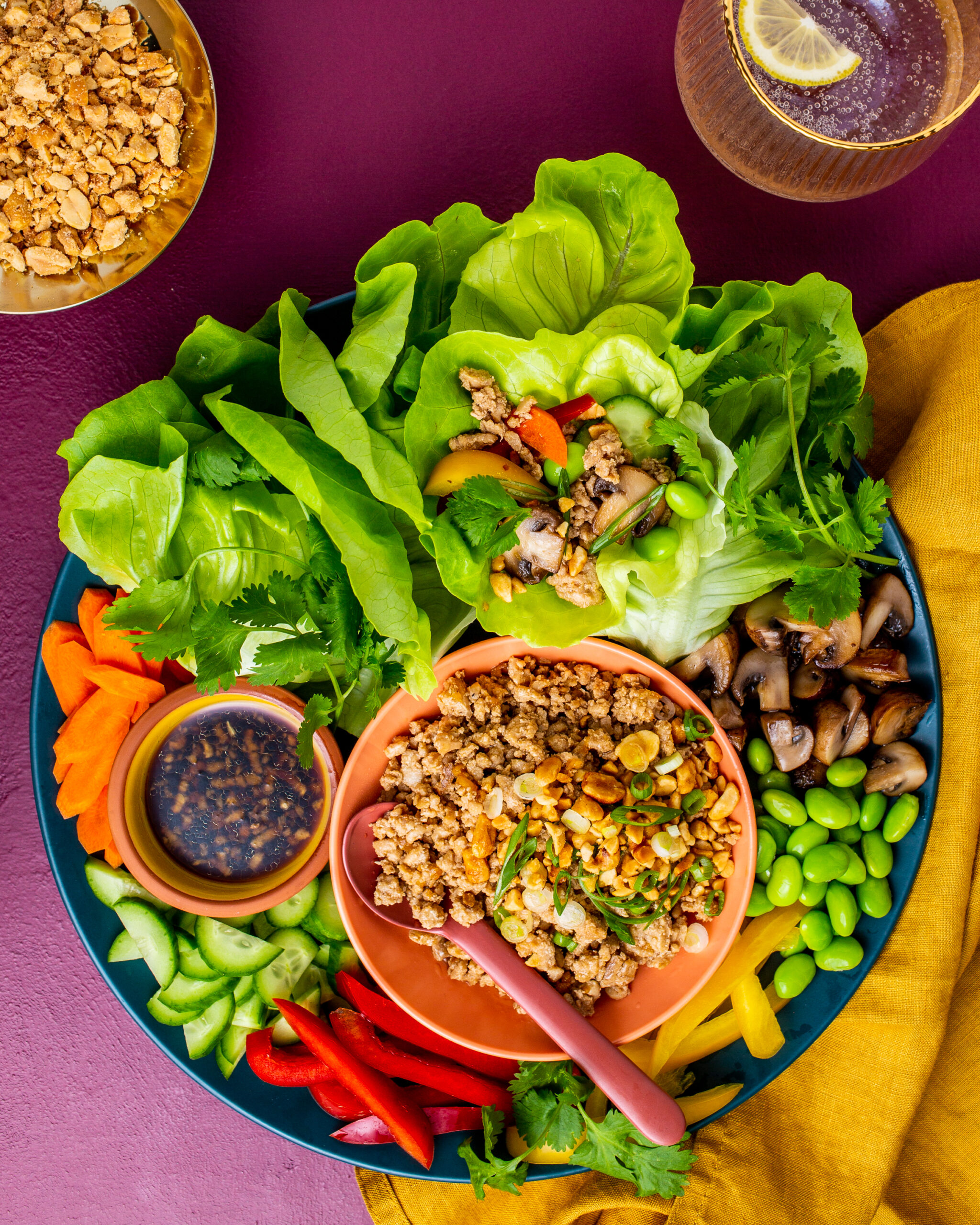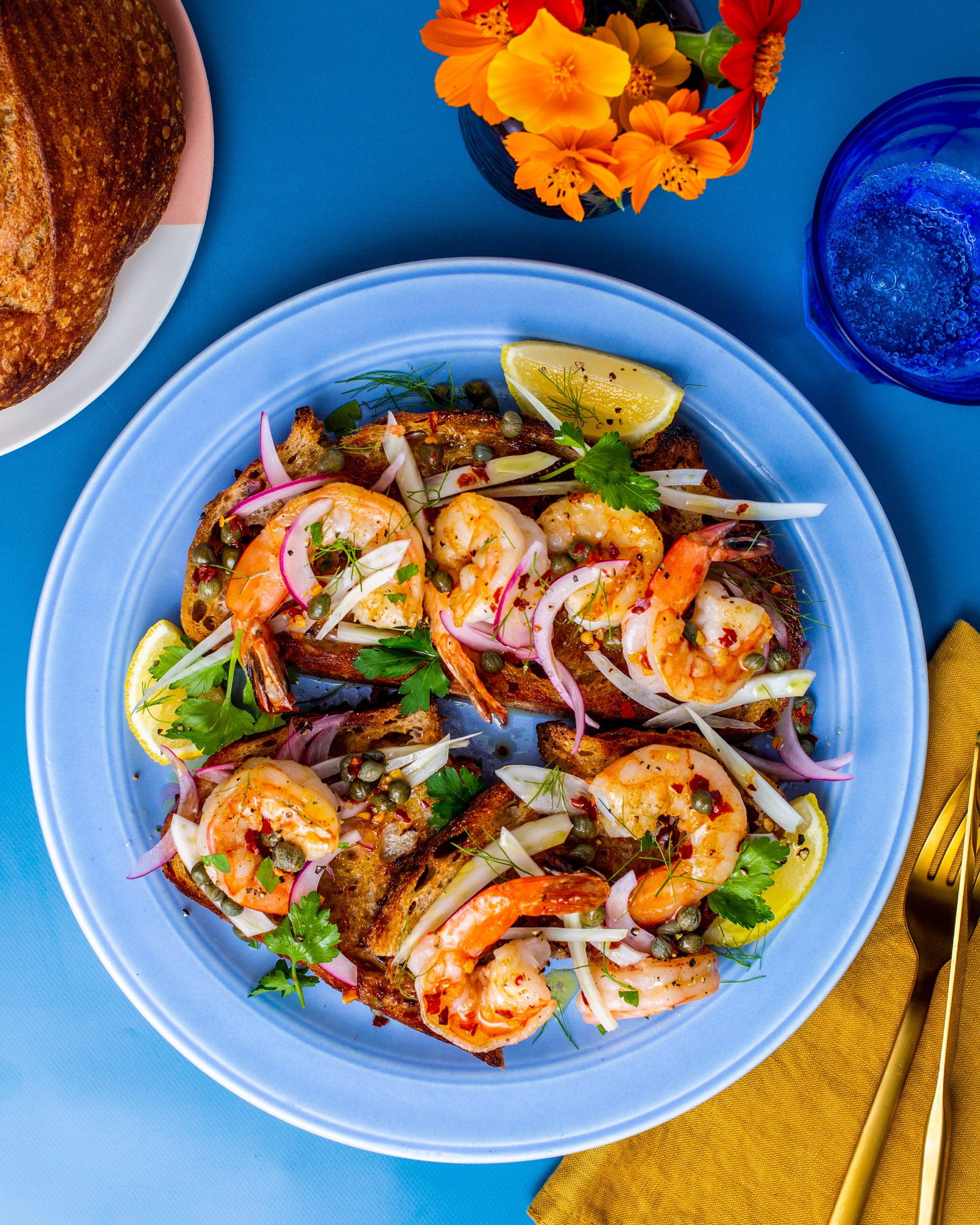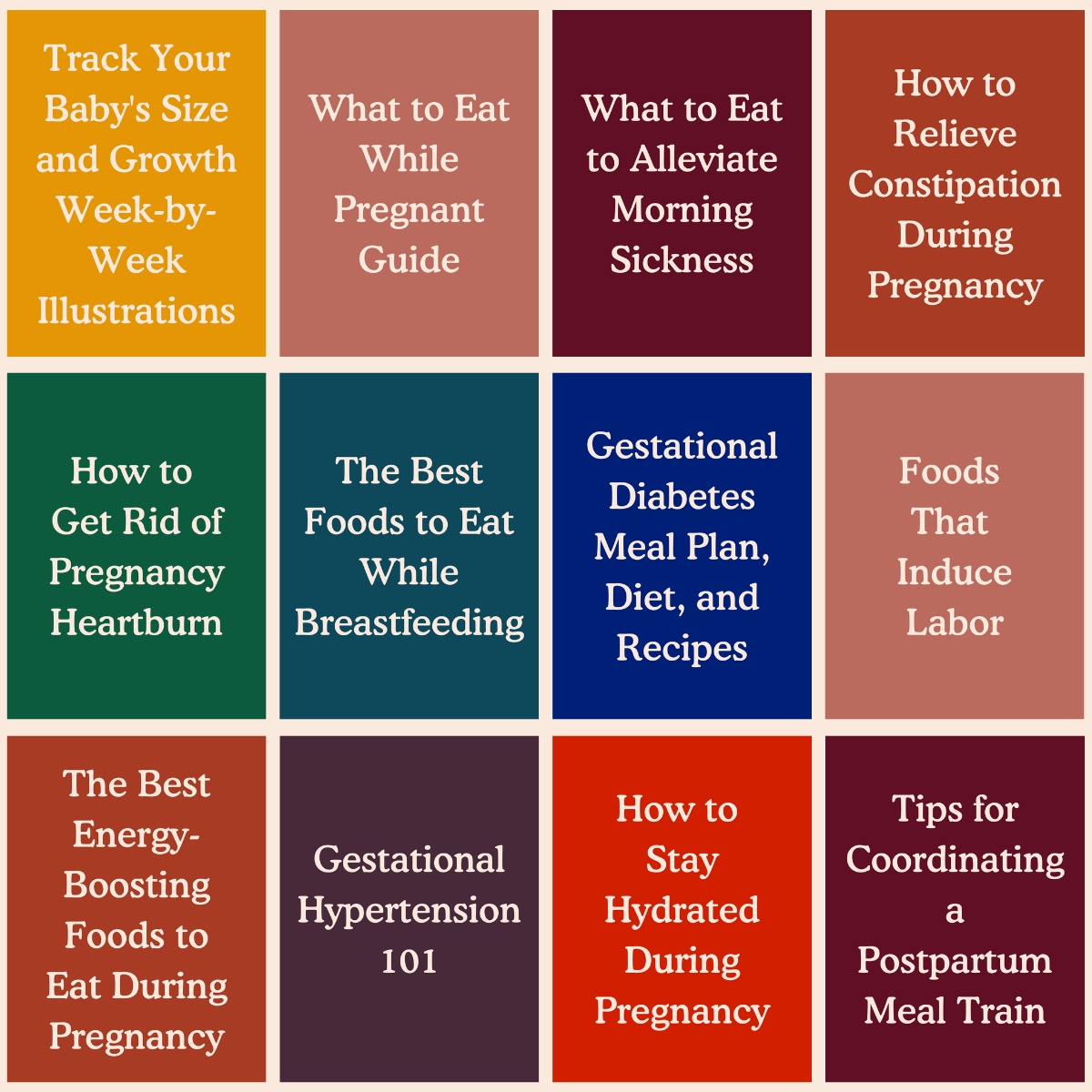The Best Recipes To Include In Your First Trimester Diet
July 17, 2023
You just found out you’re pregnant. Congratulations! This is the start of an incredible journey… But the morning sickness and fatigue may reduce the magic quite a bit. Luckily, one of the best things you can do for yourself and your baby is to be intentional with the food that you eat. Including nutritional first trimester must-haves into your diet can make a big impact on how you feel and how your baby grows.
What Happens During The First Trimester?
During this stage of your pregnancy—from conception through the end of week 13 of pregnancy—your body is changing quickly. Even though your baby only looks like a tadpole, a lot is happening! All of your baby’s systems and organs begin to develop including the spinal cord, digestive system, and circulatory system.
Tip: Curious to know how big your baby is week by week? We have some cutie foodie illustrations to track your baby’s size by week here!
Track your baby's size and growth week-by-week!
Download the full collection of illustrations!
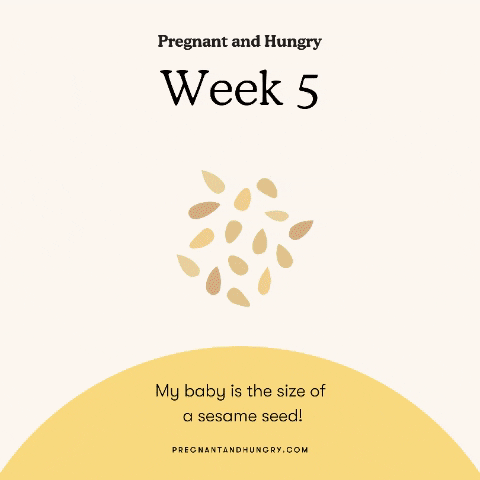
Your body is fueling all of this development, which can take its toll on you. For many women, the first trimester of pregnancy is accompanied by nausea and morning sickness, fatigue, and mood swings. Therefore it is essential to make sure you’re getting enough nutrients to support yourself and the growth of your baby.
First Trimester Do’s And Don’ts
It is essential to stay hydrated throughout your pregnancy, including during the first trimester.
“Dehydration during pregnancy can lead to serious pregnancy complications, including neural tube defects, low amniotic fluid, inadequate breast milk production, and even premature labor,” explains the American Pregnancy Association.
Get our guide to how to stay hydrated here.
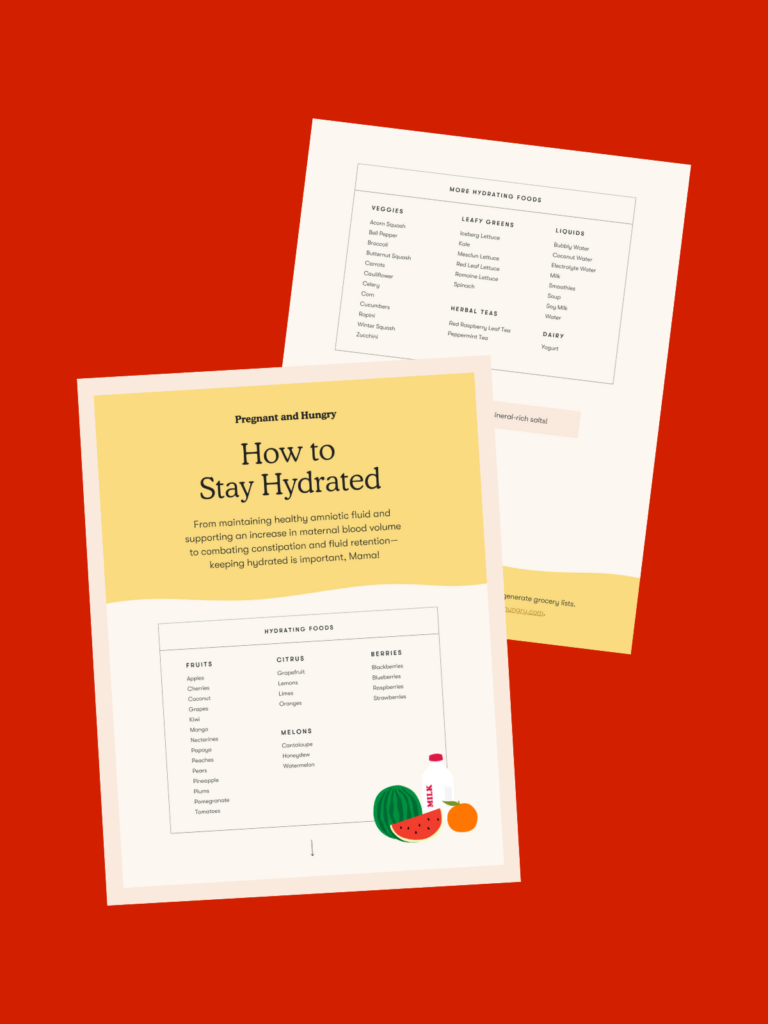
Staying hydrated isn’t just about drinking water, it’s about eating the right foods, too! This guide gives you a full list of all the hydrating foods and liquids you can add to your diet to fight constipation, increase maternal blood volume, and keep you hydrated!
A peek inside:
- The most hydrating fruits: citrus, melons, berries
- The best veggies and leafy greens for pregnancy hydration
- Pregnancy-safe herbal teas
- Plus a list of liquids to sip on all day long
Make sure your first trimester meal plan includes a ton of fruits and vegetables, as these foods have the most nutrients and antioxidants to help you through this period. Also make sure that you’re getting enough folate in your diet, as it helps prevent spina bifida and anencephaly. The CDC recommends that all women take 400 mcg of folic acid daily (in addition to eating foods that have folate) before and during early pregnancy.
When it comes to what not to consume during your first trimester, avoid raw meat (to minimize risk of contamination with coliform bacteria, toxoplasmosis, and Salmonella) and uncooked eggs (to minimize potential exposure to Salmonella), and limit your caffeine intake (try not to go over two cups of coffee a day).
What Are The Best Meals For A Pregnant Woman?
With morning sickness, heartburn, and feeling tired all the time, navigating healthy eating can be a challenge at this stage of your pregnancy. You may struggle to keep food down, so focus on quality instead of quantity in order to cover your nutritional needs.
First trimester foods that are great for your folate needs include oranges, strawberries, green leafy vegetables, lentils, nuts, cauliflower, and whole wheat bread. To support uterine tissue growth, make sure you’re including protein in your meals.
Foods to increase your iron intake include beef, chicken, eggs, tofu, and spinach—iron is a first trimester essential to prevent pregnancy anemia.
Omega-3 DHA is also important during the first trimester! This fatty acid supports your baby’s brain and spinal cord development, so add low-mercury fish like anchovies, shrimp, and salmon to your first trimester diet.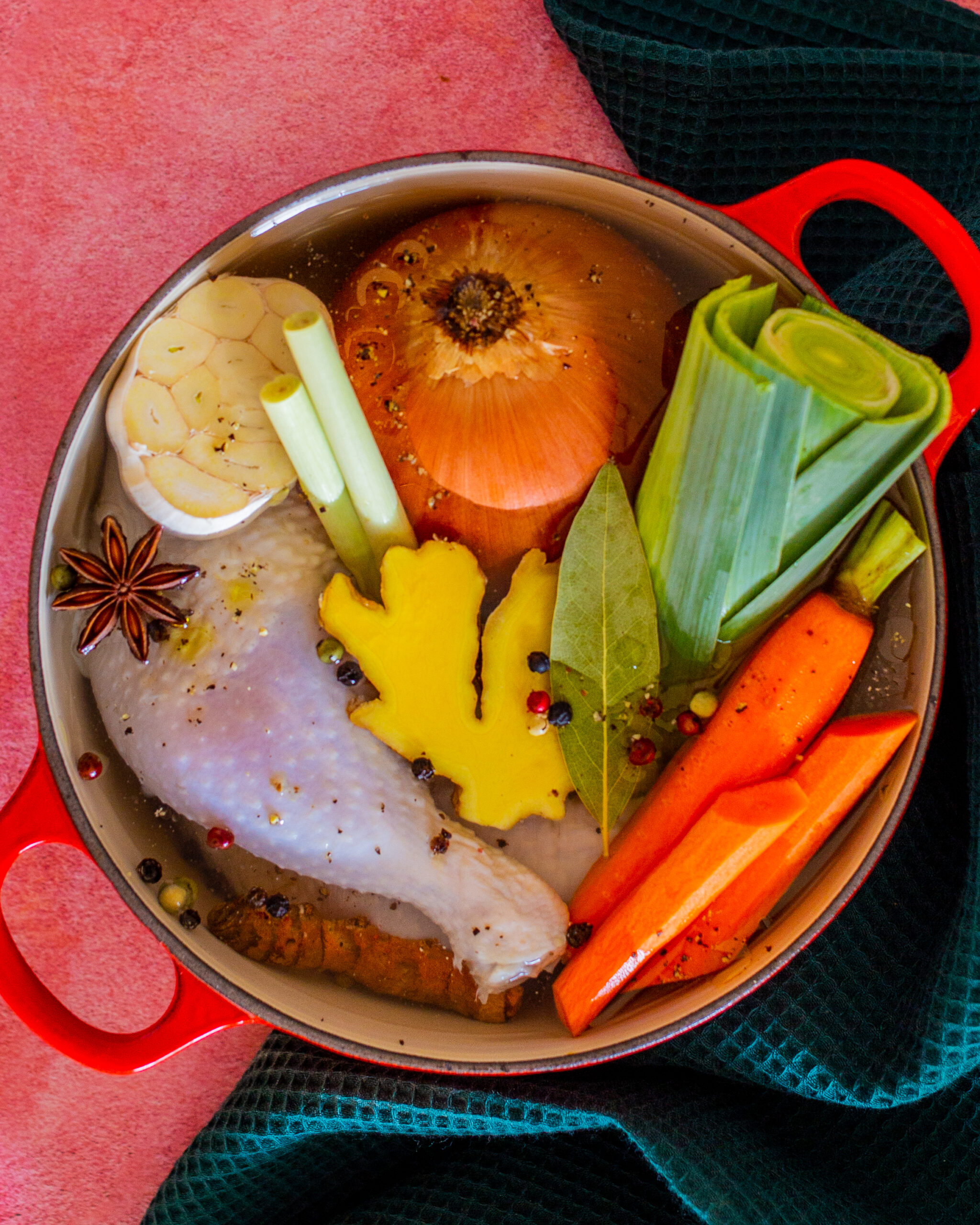
Anti-Inflammatory Spiced Chicken Broth
This broth is the perfect first trimester meal for when morning sickness is getting the better of you and you’re struggling to keep food down.
Soup can help get your hydration up, and the protein from the chicken will assist with your baby’s bone growth and muscle development.The ingredient in this soup that will relieve nausea is ginger. “In the first trimester ginger might improve nausea and vomiting by about 4 points on a 40-point scale or stop vomiting for 1 in 3 women at 6 days,” says the National Library of Medicine.
Tip: This soup is perfect for freezing, so make a big batch to have on hand whenever you need a nausea-soothing meal. Get more freezer-friendly recipes here!
Get the full recipe here.

Quickie… Pickled Shrimp!
Looking for easy pregnancy lunches to whip up? This toast is the one!
Shrimp is a fantastic low-mercury fish to add to your first trimester of pregnancy diet because it’s a great source of omega-3 DHA. While this fatty acid supports the brain and visual development of your baby, it can also potentially lower the incidence of preterm birth and low-birthweight.This recipe also calls for slices of rustic country loaf. Look for bread that is fortified to get folate.
Get the full recipe here.

Lactogenic Roasted Veg and Lentil Salad
This recipe is a healthy choice to add to your pregnancy meal rotation because it’s hydrating and helps alleviate morning sickness.
The lentils in this salad are high in folate and iron, essential nutrients for the first trimester of pregnancy. Plus, you’ll get your rainbow of veggies, too! This salad calls for cauliflower, tomatoes, zucchini, and carrots.
“Vitamin C also aids in the body’s production of collagen, helps bolster immunity and, on top of it all, improves your ability to absorb iron,” says What To Expect.
So, the vitamin C found in cauliflower and tomatoes will help your body absorb the iron in the lentils and parsley.
Get the full recipe here.
More First Trimester Tips
Besides eating nutritionally dense meals, here are three more things you can do to support your body during first trimester changes:
1. Rest
When you need rest, take it! Start going to bed earlier and take naps when you’re able to get as much rest as possible.
2. Exercise
The benefits of exercising during the first trimester include better sleep, improved mood, and reduced stress.
3. Minimize Stress
Pregnancy can be a stressful time, so it’s important to manage these feelings. Make time for relaxing hobbies you enjoy, do breathing exercises, and try meditating.
—
The first trimester of pregnancy can be incredible and challenging! It’s a critical time for both you and your baby’s development, so maintaining a healthy diet including folate, protein, iron, and omega-3 is essential. By focusing on nutritious foods, you can give your body the necessary vitamins and minerals it needs to support your health while also helping your baby thrive.
